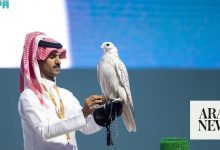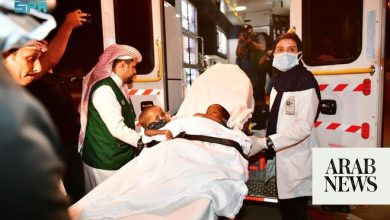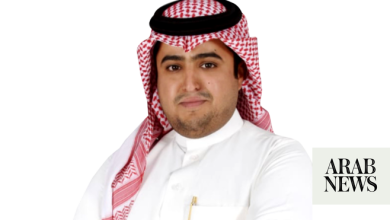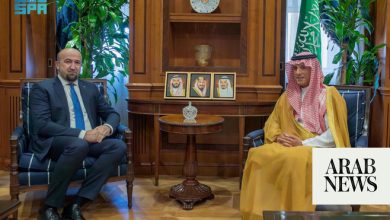Prosthetics pioneer provides new hope in Saudi Arabia

JEDDAH: HealTec, the first Saudi manufacturer of prostheses, was launched earlier this month, marking a major step in modernizing healthcare and transforming lives in the Kingdom.
The innovative facility offers people in need hope and newfound mobility as a symbol of the advancements made in the medical field.
According to a 2020 report by Invest Saudi, there is high potential for opportunities to develop prosthetics and assistive technology devices, and provide prosthetics service in the Kingdom, which is the largest spender on healthcare across the MENA region. The Health and Social Development budget exceeded more than $45.86 billion in 2019. According to the government’s 2022 figures, spending in the health and social development sector amounted to about SR99.5 billion, equivalent to 72 percent of the total money allocated for 2022.
An increasing incidence of sports injuries and road accidents, the rising number of diabetes-related amputations, and the growing prevalence of osteosarcoma around the world are poised to drive prosthetics in the Saudi and global markets. The rising population of elderly people in the Kingdom has also led to increased demand for prosthetic products.
Around 974 prosthetics were produced at 16 different workshops across Saudi Arabia, compared to 3,745 amputations that were conducted in 2018. The report stated that the Kingdom imports 100 percent of its requirements for high-tech prosthetics devices. This would make companies like HealTec a dynamic new entry in the healthcare industry that would boost localization of manufacture.
The opening of the facility represents a turning point in the Kingdom’s dedication to improving the quality of life for its residents, regardless of any physical obstacles they may encounter.
The company aims to use modern technology to push the limits of what was previously thought to be feasible in the area.
Its factory specializes in manufacturing assistive equipment and prosthetic devices using 3-D scanning and printing, and computer numerical control machining.
HealTec is the brainchild of Hashim Al-Zain, the factory’s chief technology officer. He told Arab News that he wanted to “bridge the gap” in the Saudi market of prosthetics and orthotics by leveraging the use of new and advanced technologies.
NUMBER
According to Hashim Al-Zain, the Kingdom’s prosthetics market is worth around SR3.7 billion ($933 million) a year, and he predicts that over the next five years HealTec’s share would be approximately SR85 million.
He said: “You need to work with people who have enough curiosity and great potential in engineering and medicine to solve chronic problems in the field of rehabilitation … that would help bridge the market gap to complement ongoing efforts that would streamline the direction toward achieving Saudi Vision 2030.”
The company’s main objective is to use technology to localize the manufacturing of prosthetics and orthotics. It also helps people with disabilities become more productive members of society.
Al-Zain noted that healthcare practitioners in rehabilitation, prosthetics, and orthotics needed “local manufacturers to help them source local parts that are custom-designed to their patients’ needs.”
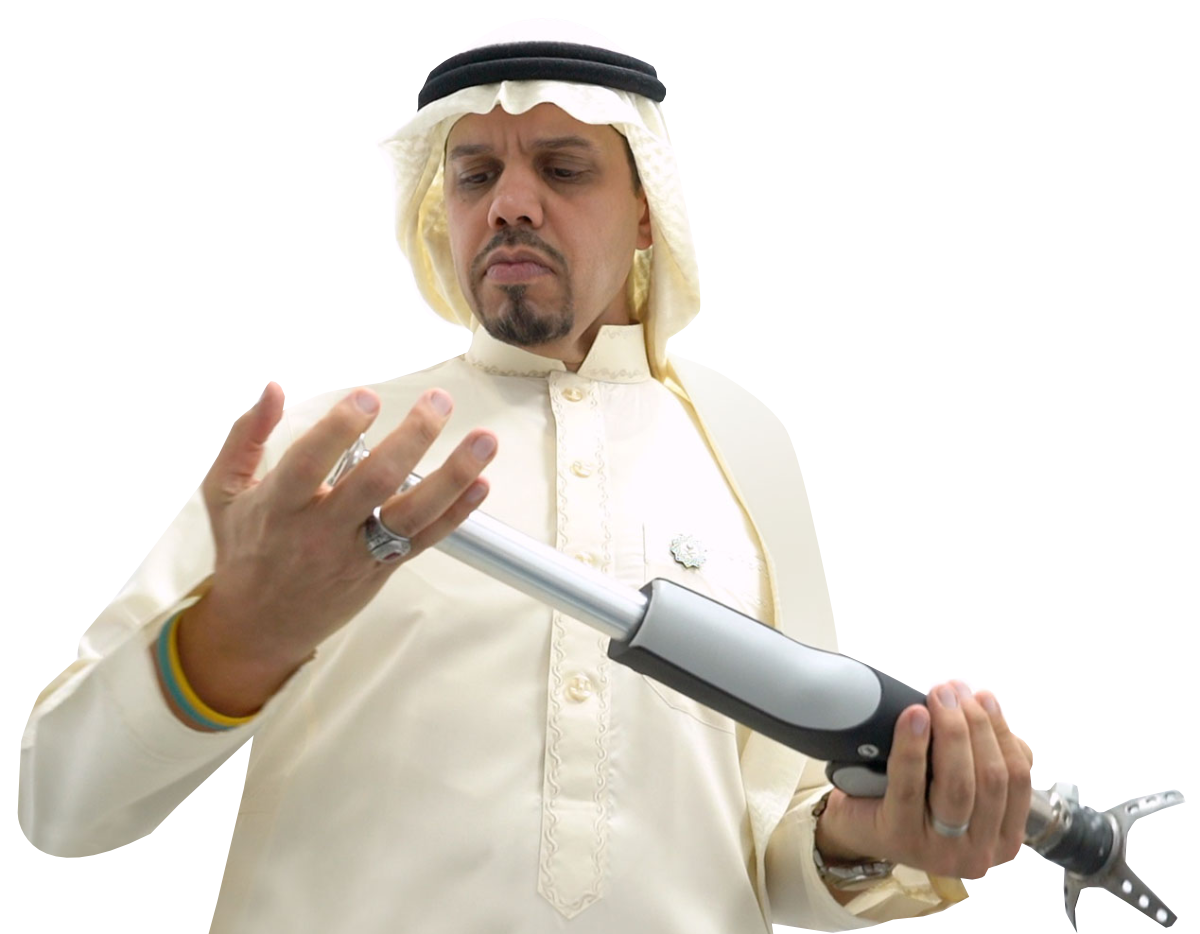
He added: “We’re doing it to help contribute toward transforming human limitations into human possibilities. What we want to do is to take localization a step further and make people productive members of society.”
On the manufacturing process, he pointed out that the firm relied on digital manufacturing which included “subtractive (CNC machining) and additive manufacturing (3-D printing), which includes both metallic and plastic parts.”
HealTec has cutting-edge laser and optical scanners, along with coordinate measuring machine probes, a broad category of instruments that use diverse technologies for direct and comparative measurements. The advanced tools enable the factory to seamlessly convert physical objects into digital representations.
We’re doing it (HealTec) to help contribute toward transforming human limitations into human possibilities.
Hashim Al-Zain, HealTec’s chief technology officer
Al-Zain said the Kingdom’s prosthetics market was worth around SR3.7 billion ($933 million) a year, and he predicted that over the next five years the factory’s share would be approximately SR85 million, fulfilling nearly 35 to 40 percent of regional demand, including exports to neighboring countries.
“The factory can also serve as an exporter of standard prosthetic parts to neighboring countries who really need them, especially countries who have been plagued with wars and conflict.
“Saudi Arabia can go beyond its own needs and extend all the way to neighboring countries that need this help,” Al-Zain added.
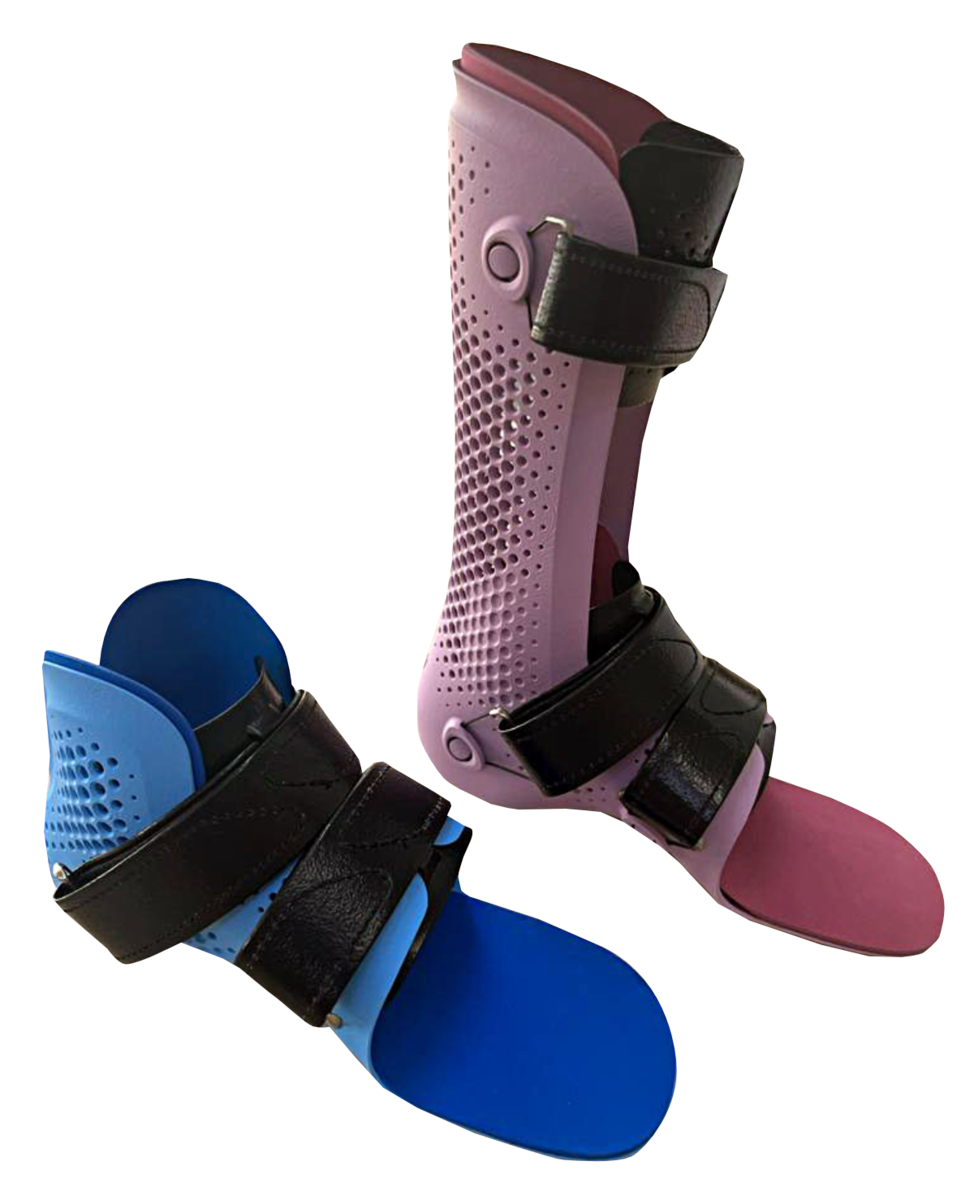
By adhering to national and international standards, HealTec seeks to produce orthotics and prosthetics of a quality equivalent to those now imported into the Kingdom while also reducing costs and speeding up production processes.
Al-Zain said: “This way, we can effectively compete based on price, delivery speed, and customizability.”
The factory’s diverse range of 3-D printers offer not only plastic-based printing capabilities but also metal printing. Materials that the company uses for the manufacture process include ABS (acrylonitrile butadiene styrene), PLA (polylactic acid), titanium, stainless steel, and aluminium. It is also trying to build enough demand to be able to outreach to SABIC and localize the production of plastics that are used in manufacturing orthotics to further reduce manufacturing costs.
HIGHLIGHTS
• The Kingdom is the largest spender on healthcare across the MENA region.
• The rising population of elderly in the Kingdom and diabetes- related amputations has led to increased demand for prosthetic products.
• HealTec’s main objective is to use technology to localize the manufacturing of prosthetics and orthotics.
“We possess a versatile digital manufacturing establishment that facilitates the transformation of any tangible item into a digital format, to enable its local production accurately and on time,” he added.
HealTec also has a lathe and mill, essential for traditional production tasks, and employs engineers and healthcare experts with a focus on local talent who can convert the needs of the industry into precise engineering parameters.
Al-Zain said: “We work with certified prosthesis and orthoses specialists who can help translate medical doctors’ requirements into engineering parameters that are necessary for manufacturing parts accurately. This allows us the freedom to basically manufacture standard and custom parts.”
Because all of the machined or 3-D printed parts at HealTec are based on internally developed, digital designs that meet international standards, production times for individual prosthetic parts are drastically shortened when compared to conventional techniques.
“Using our advanced digital manufacturing equipment, we can produce a part in as little as six minutes, whereas conventional methods may take up to one-and-a-half hours per part, excluding post-processing.
“This drastic reduction in production time means that healthcare providers in clinics and hospitals can quickly serve a larger number of people and address the needs of the community more effectively,” he added.
The need to personally interact with patients for every session can be eliminated by using digital manufacturing, especially advantageous for those living in remote areas.
Patients can be digitally scanned at their local clinic or hospital and the recorded data can then be uploaded to the cloud. In comparison to manual measurement techniques, which tend to depend on the operator’s skills, digital scanning offers more accuracy.
The information is subsequently downloaded to manufacture the prosthetics or orthotics at HealTec on-demand. The streamlined approach enables the firm to respond to patients’ needs promptly and efficiently, ultimately making healthcare more accessible and responsive across the entire Kingdom.
Wisam Nassar and Widd Mirza are the parents of one-year-old Ameer, the first beneficiary of HealTec’s 3-D-printed orthotic cranial helmet.
Nassar said: “Ameer was born prematurely and did not fully develop, so he was in intensive care for a month, and as a result, he fell asleep on one side only, while he was completely anaesthetized, which led to a change in the shape of his head, becoming noticeably flat, and we were very disturbed by this matter.”
His case was medically diagnosed by Dr. Abdulrahman Sabbagh from King Abdulaziz University Hospital. He described it as a severe case of plagiocephaly, a condition where an infant’s soft skull becomes flattened in one area due to repeated pressure on one part of the head, which can make is misshapen rather than spherical.
To treat the toddler, HealTec used one of its optical 3-D scanners which uses light to capture the physical geometry of the distortion of the head. Measurements were then translated into a digital format to design a 3-D-printed cranial helmet, supervised by the doctor.
“Essentially, we’ve converted medical data into mechanical parameters by combining engineering and medicine to create a treatment plan for the patient,” Al-Zain said.
Nassar added: “It was really hard to be connected with a company from outside the Kingdom to treat the case, as that will take ages. Thanks to HealTec, our son followed a treatment plan and now he is a few months away from full recovery.”
Ameer must wear the helmet 23 hours a day. His mother said: “We have noticed significant changes in the shape of Ameer’s head.”
The firm’s collective expertise allows for a holistic approach to patient care, ensuring that each individual receives personalized attention tailored to their unique needs.
Bilal Bin Afif, an additive manufacturing specialist at HealTec, told Arab News: “Over the last five years, additive manufacturing technologies have leaped significantly, helping the medical industry by allowing practitioners to reduce the time needed to fabricate custom products accurately.
“The need for manual and traditional ways of measuring and manufacturing products would be greatly reduced, where digitally manufactured prosthetics or orthotics would fit from the first time instead of a trial-and-error approach.”
More than 70 percent of HealTec’s staff are Saudis with backgrounds in mechanical engineering, machine design, digital transformation, supply chain, and prosthetics and orthotics.
HealTec’s roots trace back to 2012 when DarTec Engineering was established as the first reverse engineering company to localize the manufacturing of mechanical parts for the industrial sector.
DarTec’s services found relevance with prominent companies such as Saudi Aramco, the Saudi Electricity Co., National Water Co., and Saudi Arabian Railway Co.
In December 2020, Nusaned Investment, SABIC’s investment arm, purchased a 30 percent share of DarTec to help grow its outreach, which resulted in the formation of HealTec. Al-Zain said: “You have seen nothing yet.”

